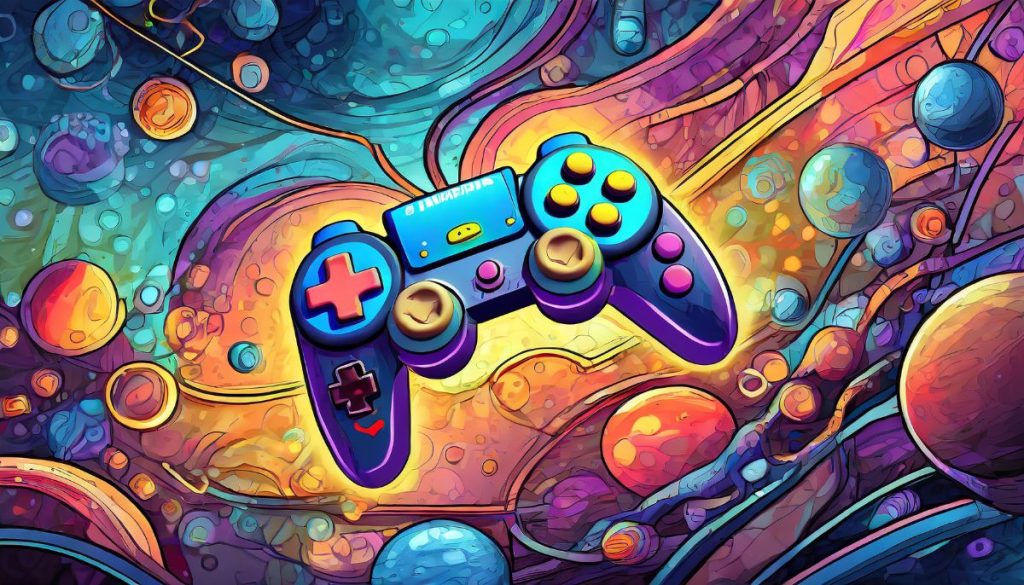The future of AI-powered video game streaming is a promising area that has the potential to reshape the way games are played, streamed, and consumed. AI is already making significant strides in this space, and as the technology continues to develop, its impact on the gaming and streaming landscape will likely be transformative. Here’s a look at the key ways AI will influence the future of game streaming:
1. Improved Personalization of Content
AI can enhance the viewing experience by offering highly personalized content recommendations based on user preferences. Instead of relying on broad categories or genres, AI will be able to analyze player and viewer behaviors, such as past interactions and preferences, to suggest streams, channels, or games that align more closely with an individual’s tastes. Streaming platforms like Twitch and YouTube are already experimenting with AI to refine content recommendation systems, and this will likely extend to include more nuanced suggestions for viewers.
2. Interactive and Indulging Experiences
AI has the potential to create more interactive streaming experiences. For example, it could allow viewers to influence the game in real time by voting on in-game events or challenges for the player. Streamers could use AI-driven tools to engage with viewers dynamically, such as creating unique challenges or customizing the gameplay based on viewer input. AI chatbots can also provide real-time responses, offering a more interactive and indulging experience for viewers, making the game stream feel like a shared, co-played experience.
3. Real-Time Content Moderation
AI’s role in moderating content will continue to grow, especially on streaming platforms where live chats can often become overwhelming or toxic. AI can analyze live chat conversations in real time, detecting inappropriate language, harassment, or spam, and automatically filtering or flagging content. This can help ensure that streams remain safe and enjoyable, encouraging more viewers to interact without fear of encountering negativity. Additionally, AI can identify trends in problematic behavior and take preemptive action, enhancing the overall health of the community.
4. Enhanced Stream Quality and Real-Time Enhancements
AI is also being leveraged to optimize the quality of game streams. Technologies like NVIDIA’s AI-based DLSS (Deep Learning Super Sampling) can help improve the visual quality of streamed games without a significant loss in performance. AI can upscale lower-resolution streams, providing a sharper, clearer picture for viewers, especially in high-demand environments like 4K or VR streams. AI-driven encoding algorithms are also improving compression rates, ensuring that the stream’s quality remains high while minimizing lag or buffering issues, which can be a barrier to smooth streaming.
5. AI-Driven Commentary and Live Narration
In the future, AI could take over some aspects of live commentary in game streaming, providing automated narrations or analyses during gameplay. For example, AI could analyze key moments in a game and offer contextual information or insights, similar to a human commentator. This could be especially useful in esports or high-skill games, where real-time breakdowns of strategies or actions could be informative for viewers. As machine learning models evolve, AI might even develop its own unique commentary style, adapting to the tone of the game or the audience.
6. Streamlining Game Discovery
AI will make it easier for both streamers and players to discover new games. Platforms could leverage AI to recommend games not just based on gameplay style, but on an individual’s preferences for narrative, gameplay mechanics, or social interaction. AI could also track trends in viewer interest, helping identify upcoming games that may not yet have widespread attention but are becoming popular among niche groups of gamers or streamers. This would be valuable for both game developers looking to promote their games and streamers trying to engage with fresh content.
7. AI-Generated Gameplay Clips and Highlights
AI is already being used to create automatic highlights from live gameplay, a feature that is especially useful for viewers who want to catch key moments from long gaming sessions or streams. This technology analyzes the gameplay, picking up on moments of high action, excitement, or significance, and automatically creating highlight reels. Over time, these AI tools will likely improve, allowing for even more dynamic and personalized highlight reels that cater to the viewer’s interests.
8. Enhanced Virtual Streaming Assistants
With the rise of virtual assistants powered by AI, streamers could soon have real-time tools at their disposal to automate tasks such as managing viewers, answering frequently asked questions, or controlling stream settings. These virtual assistants could also analyze viewer interactions and engagement, offering insights into what content resonates most with the audience, thereby helping the streamer refine their approach.
9. AI in Game Streaming Platforms’ Business Models
On a business level, AI-powered tools can help streaming platforms better understand viewer behavior and monetization opportunities. By analyzing data from users, AI can help platforms optimize advertisements, subscription offerings, or in-stream purchases to cater to specific demographics. This could lead to more personalized and less intrusive ads while boosting revenue for both streamers and platform providers.
Conclusion
The integration of AI into video game streaming is not just about improving the quality of the streams themselves but also about creating a more personalized, interactive, and engaging experience for both the streamers and viewers. As AI continues to evolve, we can expect to see more seamless integrations that make streaming more dynamic and enjoyable, enhancing everything from content discovery and moderation to stream quality and real-time interaction. The future of AI-powered game streaming looks set to revolutionize the industry, opening up new possibilities for both players and audiences alike.

